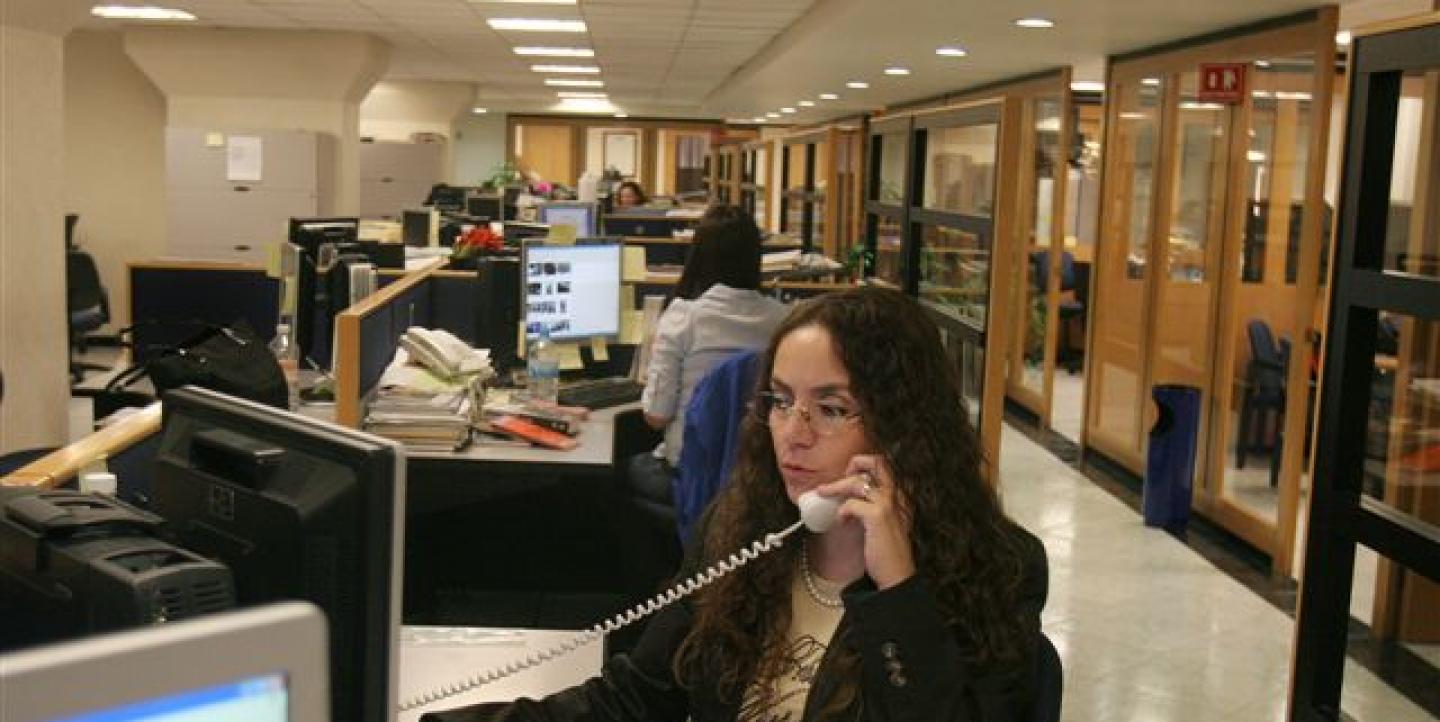In October 2007, Mexican journalist Evangelina Hernández Duarteset out to better understand local Mexican communities with the belief that the strongest newspapers are those whose reporters become part of citizens' everyday lives. Today, as co-editor of the City Section at Mexico's El Universal newspaper, she strongly supports the notion that newspapers will overcome difficult times only if they look at big-news’ impact through the eyes of everyday people. In other words, she recently told IJNet, newspapers need to commit to community journalism.
In 2007, Hernández took part in the an International Journalism Exchange (IJE) program, which allowed her to work at a U.S. newspaper, the Rocky Mountain News in Denver, Colorado. During the exchange, sponsored by the U.S.-based International Center for Journalists (ICFJ), she closely observed the U.S. paper’s operations and gained hands-on knowledge about the way the newsroom handled community-driven stories.
“My encounter with the Rocky Mountain News spurred a new bulk of ideas that I had been already developing in Mexico," Hernández told IJNet. “As I collaborated with the reporters working on stories, I learned a lot from them; overall I learned to listen to people more closely.”
Upon her return to the newsroom at El Universal, she recognized the construction of the Tren Suburbano railway, Mexico's first commuter rail system, as an opportunity to try her ideas and to foster community. The railway was making the daily news because its construction was literally dividing districts, Hernández explained, as “if a border line was [being] constructed." Suddenly, "people’s commuting became more difficult," she said.
Hernández and her team began to approach districts throughout Mexico with the goal of listening to people’s thoughts. They found no opposition from residents to the development of the railway project. The larger concern, however, laid in the project’s poor planning, which directly aggravated locals.
It was "our first test of closely listening to people and putting local people’s faces in the paper,” Hernández said. “After our report we saw positive reaction even from the businessmen who owned the [railway] franchise,” she said.
During her time at the Rocky Mountain News, Hernández also sought to better understand how editors working in the 24/7 news cycle handled daily editorial pressure while still producing special reporting each week. She noticed that major news events can create plenty of fascinating stories when told from a perspective that truly impacts readers.
Recently, in Mexico, as news of the worldwide economic crisis and the Dow Jones Index filled newspaper’s front pages, Hernández noted that most coverage was not solving reader’s immediate needs. As a result, Hernández and her team set out to improve coverage for local citizens.
“In Mexico people like to buy their products at old-fashioned markets, so our job was to see how the economic crisis hit the lady next-door who only has US$10 to buy groceries," she said. "We put ordinary faces on the newspaper, not the finance secretary’s or the businessman’s who lost in the market”, Hernández recollected.
Hernandez also credits the El Universal news Web site for enhancing the paper's product and creating community. She site, she said, is among the most visited nationally. Recently, an interactive forum posted on the site about an incident that occurred 33 years ago in Mexico received more than 30,000 visits. “We made the forum appealing" Hernández said, by "presenting the project with readers’ input." The end result was "a large report for the newspaper and an even larger [report] for the Web site, where we posted audio, galleries, and people’s statements,” she said.
Hernández is currently seeking a role as special events editor of both the print and digital platforms at El Universal; in fact, she recently ran the idea by her news director. She plans to rekindle El Universal's commitment to coverage of social issues, such as through a blog dedicated to Mexican city women.
Modern Mexican society faces overwhelming security issues as a consequence of the ongoing drug activity that caused 4,000 deaths this a year, she explained. To tackle this issue, social sectors have come to an agreement to promote and instill a culture of prevention and justice -- a commitment shared by El Universal.
“I am committed to delivering a campaign I have called ‘Más vale prevenir que…' (It is better to prevent than…)," Hernández told IJNet. "We have interviewed drug-recovered youngsters, former convicted citizens and women who worked for kidnappers," she said.
To promote the culture of justice, "we are interviewing successful young people who made it to the top without having wealthy families or financial resources, and we will show these exceptional lives in the newspaper,” she said.
Hernández defines community journalism as a path to reclaim a piece of history. That, she said, "is what fascinates people."
The International Center for Journalists’ International Journalism Exchange brings ten or more newspaper or online editors with at least five years’ professional experience from the developing world to the U.S. in October and November every year. To learn more about IJE, please click here.

